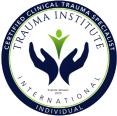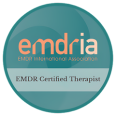If you follow the likes of Musk, Buffet, Kwik, Robbins, and Singapore’s Ng Brothers to eat live and breathe their work-based methodologies, you might be familiar with working around the clock. Did you know that some people have it in their DNA to sleep three hours a night and still remain productive and others must have seven to nine hours else they cannot proactively function at full capacity?
New Scientist discovered in 2019 that “Ying-Hui Fu at the University of California, San Francisco, and her colleagues analysed the genes of 12 members of a family that sleeps as little as 4.5 hours per night without feeling tired. They found they had a mutation in a gene called ADRB1.”
If, like me, who requires a solid eight hours, after reading that, you might begin to feel a little hopeless, there are other ways to make your time more efficient without burning the candle at both ends and needing your work fix though. Not all of us have this sleep-less gene though and some of us have the addiction genetic predisposition that leads us to habit-forming addictions and behaviours.
We’ve all seen it before–the powerful businessman sipping on his whiskey in his corner office after a long day of building empires. It’s seemingly all well and good until we get into a Nurse Jackie situation and suddenly we’re in an episode of Shameless. If all of these namedrops are not doing it for you, I’ll explain in real-life terms.
The Influence of Workaholism on Relationships and Overall Well-being
The National Institute on Drug Abuse defines addiction as “a chronic, relapsing disorder characterized by compulsive drug seeking, continued use, despite harmful consequences, and long-lasting changes in the brain.” Considering this definition, addiction sounds like it is something that would be (a) easy to identify, and (b) very difficult to cure.
The NHS’s definition is somewhat more palpable as “not having control over doing, taking or using something to the point where it could be harmful to you… Behaviours such as [anxiety addiction, workaholism, medication and] alcohol misuse can by ways of blocking out difficult issues [such as] stress and emotional or professional pressure.” Workaholism treatment is an essential aspect of addressing this specific form of dependency, and helping individuals regain a healthier work-life balance.
Both of these perspectives include the brain in their definition–NIDA speaks about addiction having long-term side effects on the brain, whereas the NHS points to stress and emotions (brain-related processes) being the trigger for addiction. I tend to see the definition as somewhere in-between, which, in fact, gets me very excited as a Certified EMDR Therapist. Why? Because, EMDR works to effectively reset the brain, which means that the initial triggers can be reprogrammed, and long-term side effects (in terms of thought processes) can be changed.
In a formal study, Markus and Hornsveld explain that ‘negative life experiences might underlie a wide range of comorbidity in addiction—not only PTSD—such as depression, phobia, social, and personality problems.’ They go on to state that ‘addiction can be seen as a way to avoid or cope with negative emotions, emotions that are… maintained by dysfunctional stored negative learning experiences.
As we go through life, our brain builds memory networks that allow us to process information and experiences. When we go through a negative experience, these networks are frozen and encoded with what EMDR consultant, Nidhi Tewari, calls ‘maladaptive information’– such as negative self-beliefs and disturbing images, which can then lead to addiction in the way that Markus and Hornsveld explain.
EMDR Therapy works at a neurological level, targeting these negative experiences and their associated behaviors, with the aim of rebuilding pathways by replacing negative thought patterns or memory networks with new, positive associations. In another study, EMDR Therapy was actually shown to reduce intense, treatment-resistant cravings in a case of Gamma-Hydroxybutyric Acid (GHB) Addiction. We all know that addiction can come in many shapes and forms including sex addiction, internet addiction, food addiction, Netflix binges, shopping addiction, gaming, and yes, even work addiction!
The Impact of Workaholism on Individuals and Their Well-being
The University of Nevada put out an article on The Impact of Work Addiction on Family Life and Mental Health, listing “staying long hours when not required, becoming obsessed with work-related performance, sacrificing personal relationships for work… having an intense fear of failure at work [and] using work as a shield for other issues” as symptoms of work addiction. If you raised your hand for all of these, don’t panic!
Burke points out that workaholism and long working hours have positive connotations, such as dedication, commitment, and organizational citizenship behavior, as well as negative connotations, such as ill health, and damaged family relationships. The positive connotations have historically outweighed the negative ones, which is why it is so difficult to identify and treat work addiction. Work addiction treatment is crucial in addressing these issues. Treating it does not mean you will relax and stop making millions by the way, it means you’ll be able to choose where your time gets spent.
How to Cure Workaholism: Is there a cure for workaholism?
In comes the hope… Griffiths, Demetrovics, and Paweł explain that ‘work addiction has been studied for decades and fits very well into recently postulated criteria for conceptualization of a behavioral addiction.’ As a behavioral addiction, work addiction falls well within an EMDR Therapy and Coaching area of expertise, providing a potential solution in the search to cure workaholism.
Remember, EMDR works to replace the thought patterns that result in negative or unwanted behaviors and is the skeletal structure that holds the juicy bits in place that create the rapid results, taking your brain to a delta wave state, which is a frequency required for the anticipated reset, National Library of Medicine.
If you do, in fact, suffer from a work addiction or find yourself working with addicts, the first thought that might be racing through your head right now is, of course, that you don’t have time to sit through hours of coaching or therapy every week when there is so much to be done. Well, this is why we have developed Advanced EMDR Intensives to allow people just like you to enjoy the benefits of a year’s worth of coaching and therapy results in just one week or weekend!
Not only will you be able to break your negative working patterns, but you’ll also be able to reset your brain to be more efficient and effective with the time that you do spend working. This allows you to achieve even greater results while spending less time in the office and more time cultivating healthy relationships and behaviors.















